When Bad Things Happen to Good Communities – Fairfield Harbor
Category: Active adult communities
Update – June, 2014. Since we published this article much has happened in the Fairfield Harbour community. The community is much further along toward resolution of the issues. To that end we have provided here a 2014 update from Larry Knapp, President of the Fairfield Harbor Property Owners Association. To avoid a continuing to and fro on this issue will not permit additional comments at this time, either here or in our Forum.
—
From Larry Knapp:
A Fairfield Harbour Update
June 15, 2014 — Almost four years to the day, the article “When Bad Things Happen to Good
Communities – Fairfield Harbor” was posted. The article fairly portrayed the events
that led to some very “bad things” happening to our community. With recent lawsuits
now settled, it’s time for an update.
Fairfield Harbour is a large community with 2,824 properties, 30 miles of private
roads, and nearly 10 miles of water front property on two wide navigable creeks
and a man-made series of canals in the inner harbor. As president of the Property
Owners Association, I would be very pleased if all the owners agreed and there was
no dissension or controversy. But like all communities, we have our share. While
discussing this with one of the POA’s attorneys, I was surprised when he told me we were “lucky.” I didn’t understand his point until he explained that in many communities 10%, 20%, and even more disagree with the majority, but in our case it was less than 1%. I understood his point, but unfortunately, that 1% can and does get attention out of proportion to their number.
When our community is looked at and evaluated by professionals, it is seen as a
great place to live. The Community Association Institute’s North Carolina chapter
named Fairfield Harbour the “Extra Large Mixed Use Community of the Year” for an
unprecedented two consecutive years in 2012 and 2013. We had the 2013 “On Site
Manager of the Year” as well as the “Volunteer of the Year” and “Board Member of
Distinction.” More recently, our manager was named one of the top three On Site
Managers in the nation by The Council of Community Association Professionals,
an independent council of industry professionals who have extensive experience in
businesses related to Association-governed communities.
Despite this very good press, we have also had some press coverage that made our
community look less than ideal. There have been three significant lawsuits and one
major related development. We have openly shared all of this with our owners and while the litigation was ongoing, our local realtors distributed a disclosure statement prepared by a local attorney. While the litigation is now concluded, there are those who continue to voice allegations that were clearly and fully dismissed by the courts.
Real Property and Dues
The first lawsuit was a declaratory judgment related to the POA’s interest in purchasing significant amenities including two golf courses, two pools, two marinas, a clubhouse, a pro shop, and tennis courts which were privately owned.
In March 2008, the owner of the amenities closed one golf course and in November
closed the second course as well. One course was re-opened in April 2009 but was
in disrepair and poorly maintained. In 2010, both pools, the tennis courts, and the
clubhouse were closed. The POA sued the owners and was awarded 1.4 million dollars
which remains unpaid. The community was surveyed and the majority of owners
wanted the POA to pursue a purchase with financing spread over many years. The
Board began due diligence to prepare an acquisition plan that would be voted on by the entire community. In July 2010, two couples (Drez and Gumpel) hired an attorney who informed the board that any attempt to purchase the amenities using dues would be vigorously opposed through litigation.
Given that the threatened suit appeared inevitable if they moved forward, the Board
elected not to spend money on necessary appraisals, fees, and consultations until the community’s authority or lack of authority to proceed was clear. Furthermore, the Board determined it would be best for all if the answer was obtained as soon as possible. This led the Board to file a Claim for Declaratory Judgment—a lawsuit involving no rewards or damages, just a declaration by the Court on an existing controversy. The court heard the matter and ruled that the POA did not have the authority to purchase real property using dues. At that point, all POA efforts to pursue the purchase ended.
Amenities Update
The one open golf course is now managed by Billy Casper Golf and is very much
improved with play by non-residents as well as our owners. The owner of the amenities, however, has filed for chapter 11 bankruptcy. The POA is hopeful that a reorganization plan, when approved by the court, will provide a permanent solution to our amenities problem.
Alleged Conspiracy
In March of 2011, the same two couples named in the declaratory judgment were joined by other owners in a civil action alleging a board conspiracy to purchase the amenities and harass those who opposed the purchase. After three years and extensive written discovery and depositions, the FHPOA and the individual defendants filed a Motion for Summary Judgment arguing that there were no genuine issues of material fact remaining and that all of the Plaintiffs’ claims should be dismissed. After reviewing and considering all evidence, the trial court granted the Defendant POA’s Motion on February 14, 2014, dismissing all the pending claims.
Alleged Illegal Dues
In May of 2013, Simon Lock and other owners who had not paid their dues and had liens placed on their property sought a declaratory judgment ruling that Fairfield Harbour was actually two separate communities requiring two associations and two boards and that the current board was illegally comingling assessments from the two communities.
On Monday, December 16, 2013, the judge signed the order in this lawsuit. The court concluded “that a proper search of the public records would have placed the Plaintiffs on notice of the existence of one unified subdivision known as Fairfield Harbour,” all owners “are obligated to pay the Fairfield Harbour Property Owners Association, Inc. an annual charge,” “the Association has valid and enforceable liens against the Plaintiffs,” “the Association is entitled to foreclose on the Claims of Lien,” and “Defendant [POA] is entitled to have and recover against the Plaintiffs reasonable attorneys’ fees and costs in the amount of $110,975.41.”
So Where Are We Now?
We are a community that has obtained a definitive answer regarding our inability to use assessments to purchase real property. We are a community that has prevailed in both the allegation that there was a conspiracy as well as the allegation that our assessments were illegal. More importantly, we are a multiple award-winning community recognized for an incredibly diverse range of clubs, activities, and lifestyles. We are a community where the vast majority of owners are supportive of the board of directors and its actions on their behalf and consistently elect like-minded directors who want to maintain and improve the community. And, to be honest, yes, we are also a community with a small minority of owners who prefer to complain and disagree with the board’s decisions. That is their right and the elected board respects it. And finally, we are a community that continues to attract new owners who see Fairfield Harbour as a place to truly enjoy life.
Please visit our web site and see for yourself what our community is all about.
Fairfield Harbour Property Owners Association
Larry Knapp
President, FHPOA
(The original article starts here)
June 25, 2010 – (See 2013 update at end of article)
There are oh so many ways for even the best run active communities to run into trouble. This article will outline the travails of Fairfield Harbour, an outstanding active community in New Bern, North Carolina.
Full disclosure: Last week Topretirements featured Fairfield Harbour in the weekend edition of our newsletter as an example of a desirable active community in eastern North Carolina. Immediately after sending out the newsletter we were alerted by several readers, who either owned property there or who had recently visited the community, that all was not well in Fairfield Harbor. They brought to our attention that one of the two golf courses had closed, and the other looked to be in bad shape. Some other amenities appeared to be closed. Property values were very depressed, they said. We regret that we had not discovered these problems before we went to press. This week we investigated the situation further, speaking with a prominent area real estate agent, Hugh Mobley of Neuse Realty, as well as the President of the Board of Directors of the Fairfield Harbour Property Owners Association, Larry Knapp. Both parties were very forthcoming in explaining the actual situation on the ground.
Everything you might want in a community
Fairfield Harbor, originally developed in 1975, offers an unusually broad range of facilities to its residents. Located on Northwest Creek, a branch of the Neuse River, it offers access to the Intracoastal Waterway. It is a very large community with 1390 single family homes, 152 condominiums, 207 time share units, and 24 townhomes on over 2000 acres. Fairfield Harbour has 3 marinas, 2 golf courses, indoor and outdoor pools, Community Center, Red Sail Park with tennis, picnic areas, bocce, etc. – even its own Firehouse.
The beginnings of a problem
The community’s problems began after the Developer sold some of the amenities (clubhouse, pools, marina, 2 golf courses etc.) to a group of homeowners, who subsequently sold them to a private company, MidSouth Golf LLC. The agreement that Fairfield property owners had with MidSouth guaranteed certain maintenance standards and the ability to audit the company’s books. MidSouth dramatically increased amenities fees for the time share owners and commenced litigation to enforce the increase. The time share owners won the lawsuit. Unfortunately that was not the end of the case. Deprived of the income from the time share owners’ amenities fees, the company permanently closed one golf course and temporarily closed the second. A second lawsuit was filed against the company by the Association over the amenities closings and maintenance standards. The company also lost this lawsuit, and the property owners were awarded $1.45 million in damages (which is being appealed). One golf course (with minimally adequate maintenance) is now open. There is another lawsuit in process by several hundred owners seeking relief from the requirement to pay the fee which the timeshares no longer are required to pay. At this point the time share owners don’t pay amenities fees. Deprived of services, most of the condo owners have also stopped paying.
We asked Larry Knapp, President of the Property Owners Association, what he thought about these conflicts, and when they will be overcome. Larry told us that the POA has surveyed its homeowners, asking them to vote on a range of options. About 60% of the homeowners would like the POA to try to purchase the amenities owned by MidSouth. If that deal could be put together then homeowners would be liable for the $495 annual dues they pay already, plus approximately $200/yr to cover the purchase price and basic maintenance (considerably less than the $600 amenities fee charged by MidSouth).
A sticky issue
In any community where there are a lot of expensive amenities to be maintained, the issue comes up of who should pay for them. The folks who use the amenities would like the POA to own them. Those who don’t would prefer not to. If the POA owns them, the users will pay a fee for golf and boating, and perhaps other amenities as well. That is an issue that the POA is working on now, as it tries to put together a deal to repurchase the missing amenities.
The situation today
Larry Knapp, Hugh Mobley, and everyone else we spoke to about Fairfield Harbor remain incredibly optimistic about the great community Fairfield Harbour is to live in. They believe it is a unique and wonderful place. When Topretirements asked area realtor Hugh Mobley if property values were very depressed as a result of the the current problems, he responded: “I don’t think that would be true. I think many areas of the country would be quite pleased to be faced with our situation. Prices here did not rise that much during our boom years in the early 2000s. And they have gone down around 11 or 12 percent since, plus we have only had a minimum number of foreclosures. The problems are low sales volume and the number of homes and lots on the market for extended periods of time. I recently heard a figure of 42 months supply. Virtually no new homes are being built which really hurts our local builders.” Larry Knapp believes “the unique location and physical characteristics of the community make its turnaround very likely and that being the case, there are some real bargains to be had.”
What we can learn from Fairfield Harbour
Unfortunately, bad things do happen to good places. The Fairfield Harbor situation is a mess, but fortunately it appears to have strong leadership trying to resolve its problems. If you live in an active community, or you are thinking about buying into one, here are a few points you might consider:
– Due diligence. Before you buy, find out everything you can about the community – finances, legal structure, rules, ownership, assessments, legal battles etc. You can’t know too much – whether you already own or are thinking about buying
– Talk with owners. Sometimes the best way to get additional information is to ask questions of current residents
– Search on Google or local newspapers. A lot of trouble that is hard to find out about is available from these sources
– Be wary of transitions. In the usual course of a development, the developer owns all of the facilities. At some point those are turned over to the POA (community association). That process is critical – if it hasn’t happened yet, try to figure out the rules for how it will come about
– Strong leadership – and participate. As you can see in the Fairfield Harbour situation, they got into a terrible, costly and complicated mess. Strong and capable leadership is essential. Every POA needs experienced, dedicated, and reasonable people in leadership positions to be able to make the best of them. Even if the community does not have outstanding issues at the moment, the wrong leadership can make costly mistakes (like postponing maintenance or spending reserves on the wrong projects) that can drive a community into serious problems. If you are not involved, volunteer or at the least, be intelligently informed about what is going on.
2013 – An ongoing situation
As of the end of 2013 there were still 2 Fairfield Harbor lawsuits working their way through the courts, although it seems like there will be some resolution soon. Since this article was written much time has gone by. And, since the lawsuits are still active, we have since deleted all comments to this article and do not permit new comments at this time. (see 2014 update at top).
For further reference:
Fairfield Harbour review
Fairfield Harbour Property Owners Association
Map of Fairfield Harbor (be patient, very large file)
Neuse Realty
New Bern, NC
comments for this post are closed

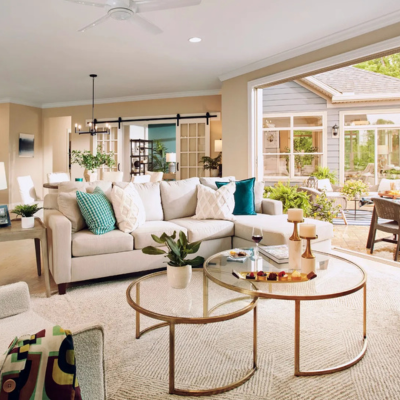
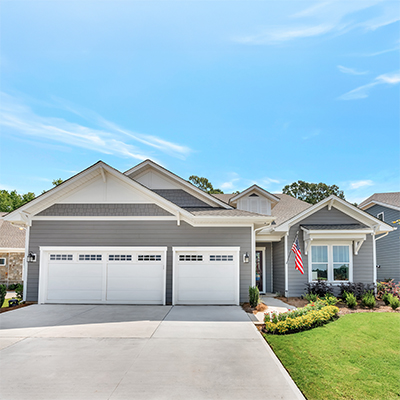
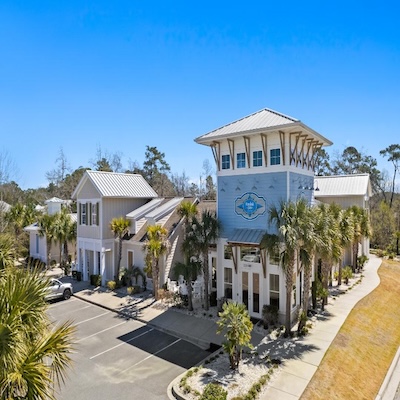
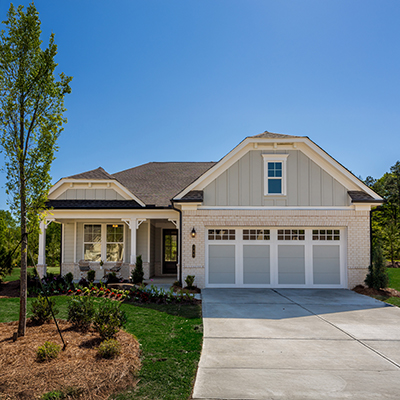
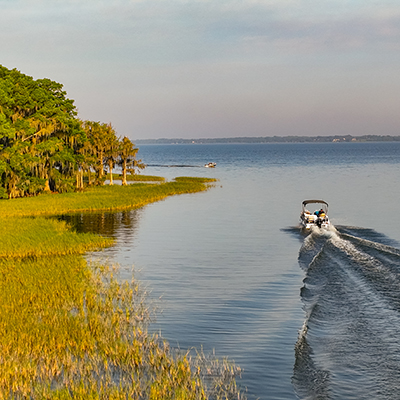
Comments on "When Bad Things Happen to Good Communities – Fairfield Harbor"